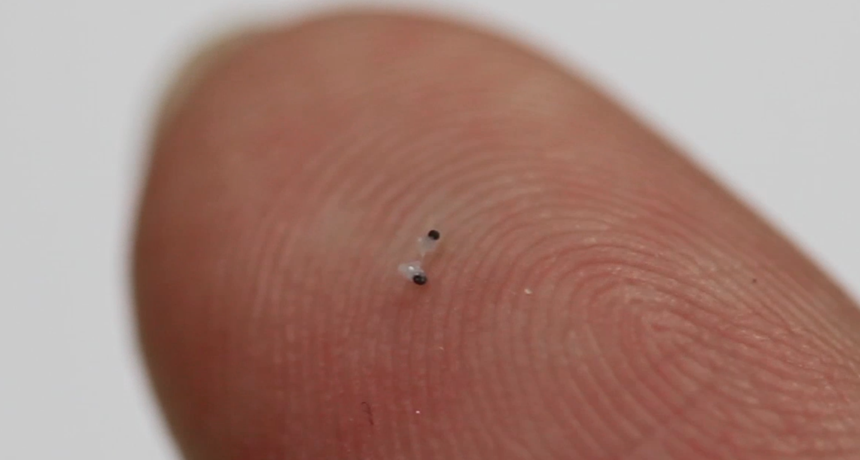‘Micro-scallop’ takes a stroke toward swimming in blood

Designed like a scallop, this tiny device can flap its way through fluids that have inconsistent viscosity, something that has been a challenge in the past.
Alejandro Posada/MPI-IS

Designed like a scallop, this tiny device can flap its way through fluids that have inconsistent viscosity, something that has been a challenge in the past.
Alejandro Posada/MPI-IS